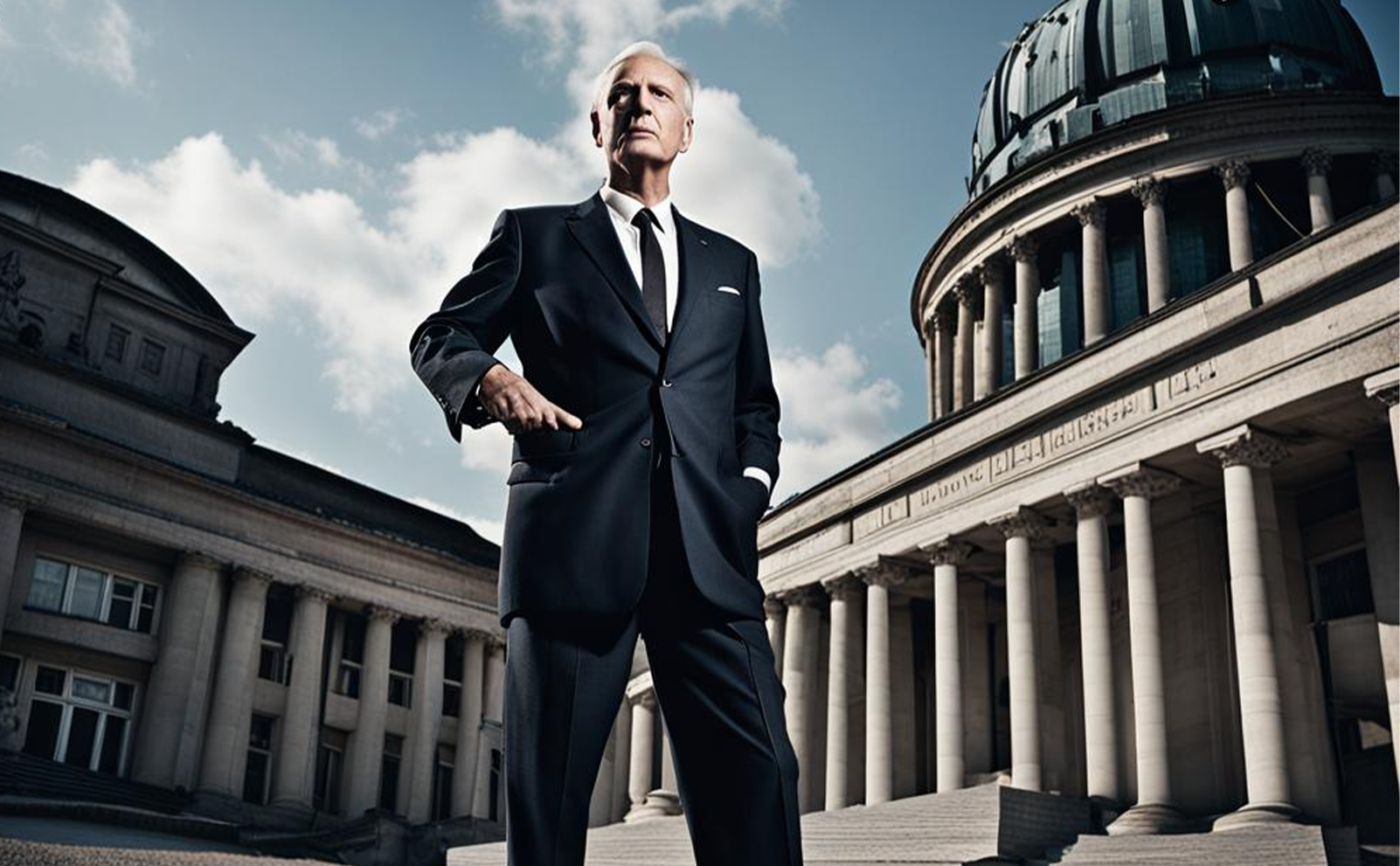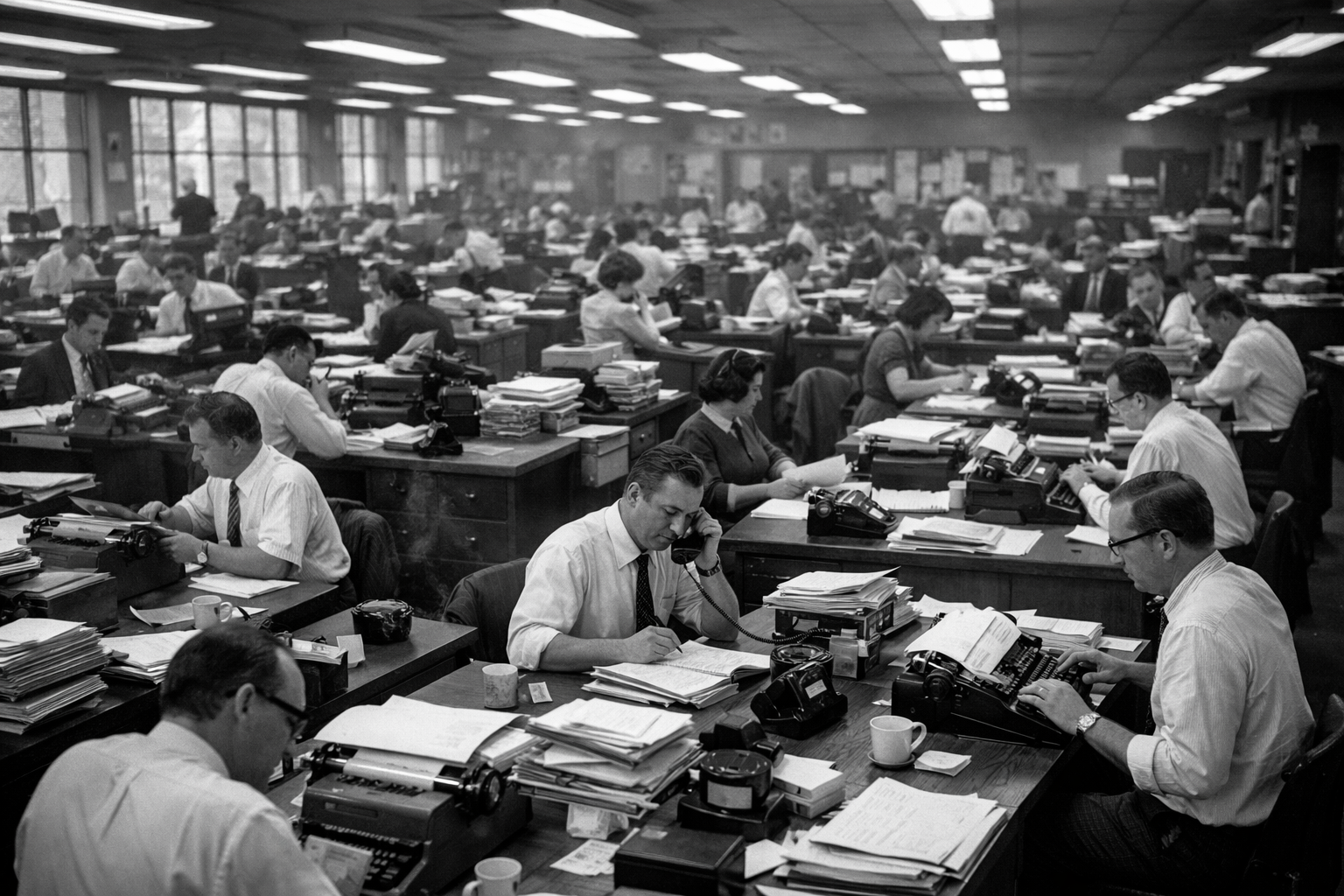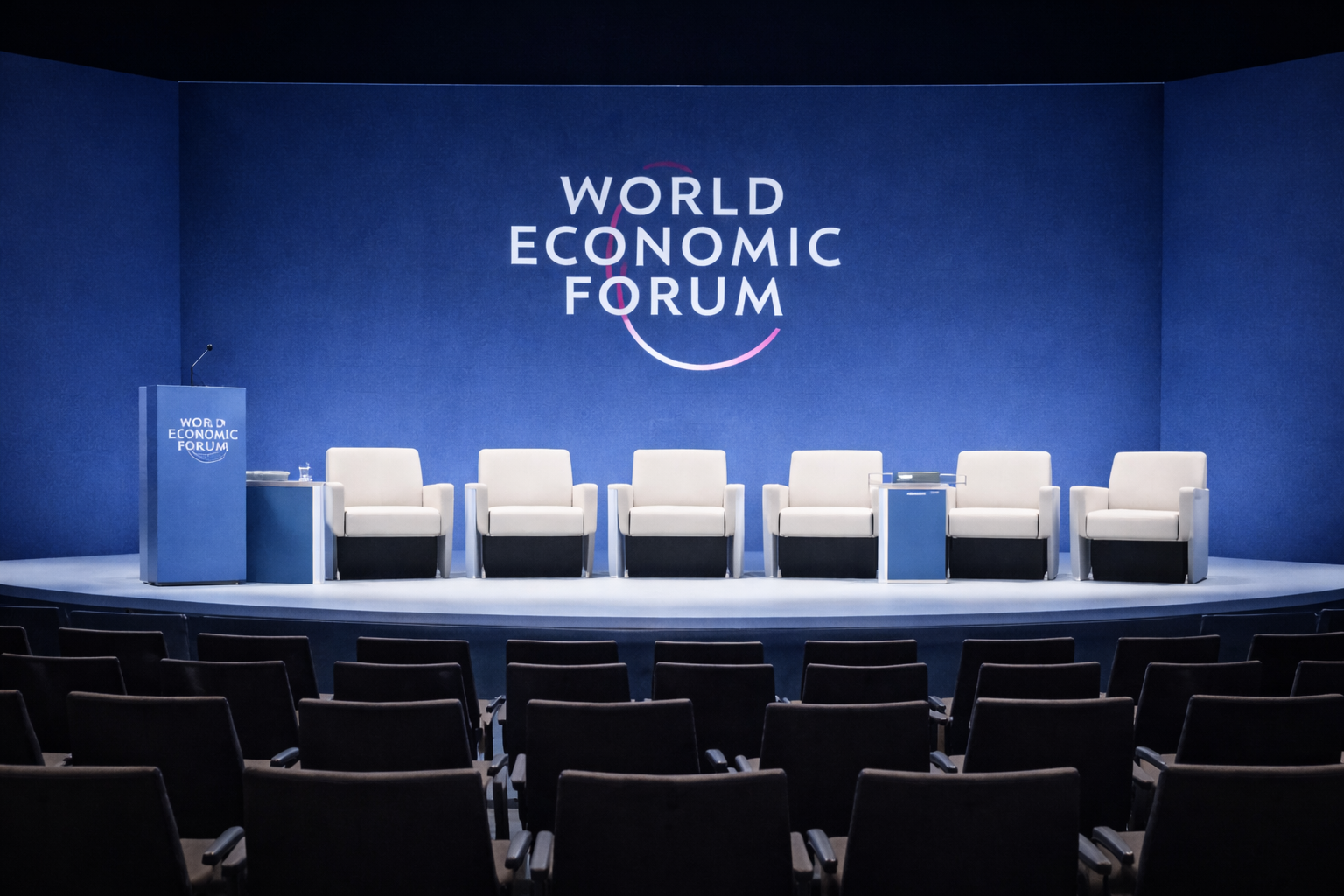Who will show us the way this time?
History will hopefully repeat itself. In the 1930s, capitalism was already heavily criticised by the public. The stock market crash of 1929, the global economic crisis, monopolies by large corporations and increasing inequality after the Roaring Twenties led to doubts about the economic concept in the western world.
Parallels can be drawn to the present day: Capitalism is identified as the cause of excessive consumption, too much inequality, instability and an economy beyond the environmentally sustainable limits of our planet. But there are other parallels: Societies in many countries were radicalising to the left and right. Communist and fascist tendencies intensified, as did the associated autocratic tendencies in more and more countries. We can also observe these developments today.
Freedom and liberalism as driving forces of change
Walter Lippmann, a renowned journalist of the last century, took a critical look at the contribution of journalism in the then emerging age of mass media and its influence on democracy. For him, freedom was the key achievement in the democratisation process of societies in the previous century.
In 1938, at the invitation of the philosopher Louis Rougier, Lippmann took part in a colloquium in Paris with other intellectuals and economists, including Friedrich August von Hayek, to discuss and reorganise their liberal convictions. In retrospect, some historians see the difficulty in agreeing on the then new term “neoliberalism” as an important aspect that lent the movement worldwide weight.
What apparently united and drove the participants was the desire for a unifying new liberalism that would set itself apart from the capitalism of the 19th century. This idea led to the development of the Freiburg School in Germany with Wilhelm Röpke and Walter Eucken, on the basis of which Ludwig Erhard in turn helped to shape the German economic miracle.
Competition instead of the free market
Neoliberalism favours a strong but lean state. This should set fair competition rules, prevent monopolies and protect individual freedoms. It is therefore not about an uncontrolled market, but about a balanced order. Contrary to popular belief, neoliberalism does not focus on the free market, but on competition. While a completely free market would lead to concentrations of power, competition, on the other hand, serves consumers and their sovereignty – or so the neoliberals believe.
Origin of the negative development of capitalism
Neoliberalism received a further boost at the end of the 1970s with the liberalisation of the economic system following the oil crisis. A Keynesian-orientated policy of demand management had led to economic decline and stagflation in many Western countries. The concepts that are still valid today were developed to ensure that the monetary policy of central banks was rule-based and independent of political influences, thus removing it from the control of the state.
Even though neoliberalism achieved huge popularity with the economist Milton Friedman and his television programme “Free to Choose”, other forces took control of economic policy after the fall of the Iron Curtain. Today, this period under Reagan and Thatcher is seen as the origin of the negative developments of capitalism.
When can we preceive our society as over-regulated
In the last four years, we have stumbled from crisis to crisis with coronavirus, supply chain problems and the war in Ukraine. We have reacted to this in almost all countries with a strong hand from the state. Germany has given neo-dirigism a special flavour with its very special eco-dirigism.
But we are no longer allowed to feel patronised in our society: the state is sweetening the withdrawal of personal freedoms with corona money and heating premiums. The media have allowed themselves to be harnessed to a wokeism that simply forbids us from discussing topics such as gender, green transformation or migration objectively without being pushed into some indisputable marginalised group.
The state dirigisme and the parallels of radicalisation cannot be overlooked. Clearly, we in Germany have the task of standing up against the right as a result of our history. But the core issue is one that we have neither recognised nor articulated so far: Our freedoms and therefore also our personal responsibility have been massively pushed back in recent years by more and more state neo-dirigism and also by further social constraints.
But who is standing up?
Where are the intellectuals, the economists, the liberals now? Where is their voice? Even entrepreneurs are afraid to speak out – the risk of being caught up in a storm on a social media platform or perhaps even on public radio is too great.
Not even in our schools or universities today is the basis for the right to freedom and personal responsibility, namely performance, even allowed to be mentioned, let alone demanded.
We equalise, redistribute and relativise. Instead of freedom, we insist on individual rights that we are supposedly entitled to. The connection between freedom, entitlements (rights) and responsibility is unclear to most people today. Can there be a new Lippmann moment? Th agreement on a term like neoliberalism as a new movement for the freedom that has been taken from us?
Do we really know what we want?
I’m afraid we can’t yet articulate that we want more freedom! We still talk about the four-day week, about work-life balance and dream of effortless prosperity. We are still far too well off.
We need a state again that sets the framework for fair competition and prevents concentrations of power instead of getting lost in micromanagement. Empowering citizens as consumers and sovereigns must take centre stage. We need more personal responsibility rather than even more bureaucratic paternalism and precise specifications as to which heating systems we have to install.
We also need a greater sense of reality in our self-perception of our geopolitical situation. We can no longer expect other countries to protect world trade and, above all, our interests as a global export nation with their maritime power. What if we ourselves had to protect the trade routes of our energy supply and our exported machines?
In this world, the personal freedom of each individual and the freedom of our basic democratic order are essential. And you can’t wish for this free basic order without giving something. Giving and standing up for something have very different facets. They touch on things like money and the willingness to support a defence budget that is taken seriously. But also a clear foreign policy position on allies such as Israel or specific arms deliveries to Ukraine.
We have taken this fundamental liberal order for granted in recent years and have forgotten how to stand up for it
Innovation, economy, capitalism, personal responsibility
In order to master the other major challenges of our time – geopolitical instability, climate change, scarcity of resources, digitalisation – we need a stable and liberal society and a reliable economic system embedded in it. Only in a healthy and prosperous overall system of society and economy can the technological innovation that is urgently needed for many of these tasks emerge and develop. The basis for this is openness, personal initiative and entrepreneurship. If everyone takes more responsibility for themselves, the state can create scope for an innovation-friendly economy.
The basis of our economy is capitalism. There are now too many negative narratives attached to it. Nevertheless, it is still the best form in which we can coordinate our interests efficiently. Social goals also require a coordinating system for their broad realisation in order to create an overall achievement from the many individual interests. This form of resource utilisation involving individual self-interest is the real strength of capitalism as a system.
Only with a functioning economy, embedded in a capitalist system, will we be able to maintain our personal freedom, our democratic-liberal basic order and our prosperity.
Every individual should stand up: Appreciate and demand freedom
Yes, we must adapt neoliberalism to the requirements of globalisation, a mindful approach to our planet and the urgently needed digital transformation of our industry in order to successfully master these times.
It is time to rediscover neoliberalism and capitalism as tried and tested concepts and develop them further.
We need a new neoliberalism based on competition, individual freedom and sufficient state regulation in order to create a fairer and more dynamic society again.
We should not hope and wait for a new Hayek, Lippmann or Erhard! We should start on a small scale and take responsibility for ourselves. We should value freedom and stand up for it, demand and deliver performance and not insist on our rights.
It is our liberal duty to defend ourselves against state dirigisme and not allow ourselves to be intimidated by wokeism and cancel culture.



